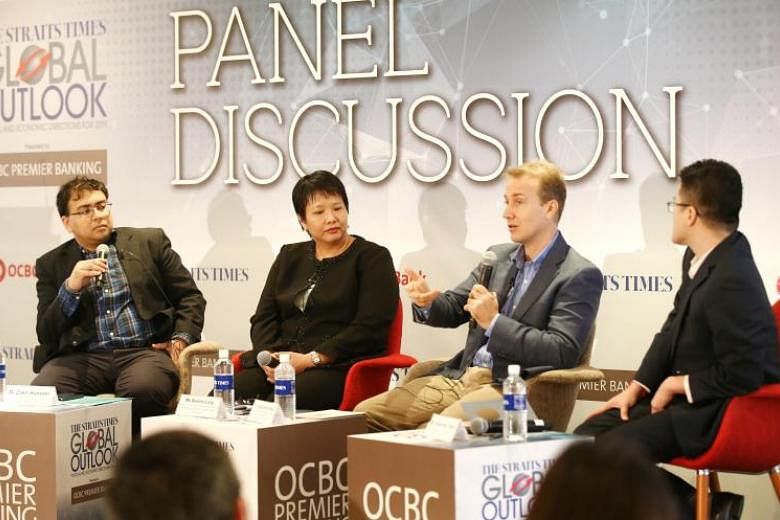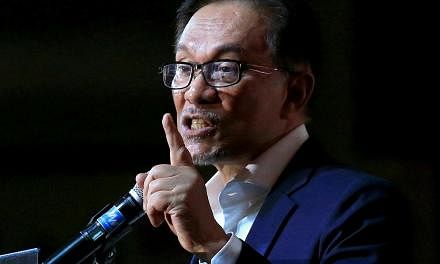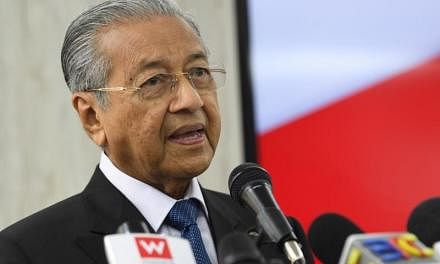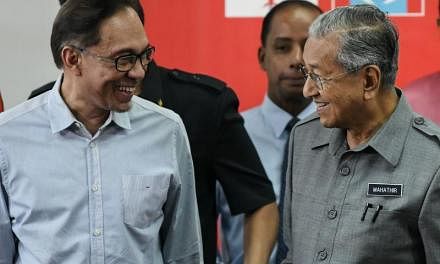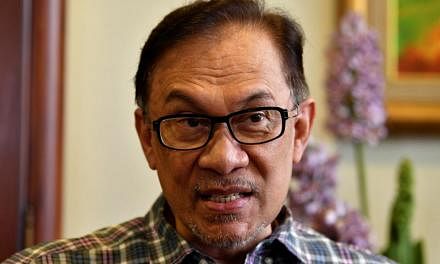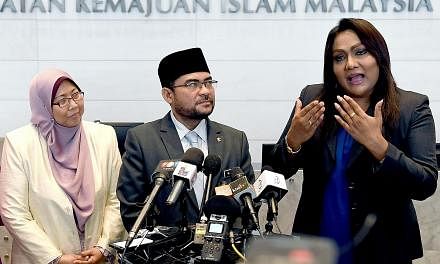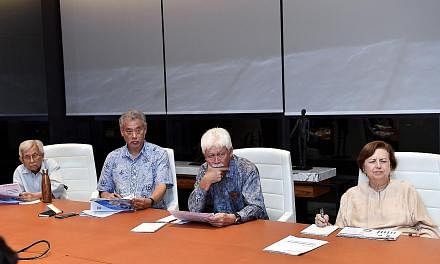SINGAPORE - If Malaysia's May 9 general election fails to produce a clear winner, what will happen next?
Will there be race riots?
Will Malaysia declare an emergency?
And if Tun Dr Mahathir Mohamad becomes prime minister again, will he really pass the baton to jailed leader Anwar Ibrahim?
These questions - already raised on social media and in private conversations - were put to the three experts at the The Straits Times Global Outlook Forum panel discussion on Thursday (April 19).
As the polls inch closer, speculation is mounting that the election result may be too close to call, and that the gap between ruling coalition Barisan Nasional (BN) and the opposition pact Pakatan Harapan (PH) is narrowing.
"In the case of Malaysia you've had 60-plus years of rule by BN, so if there is going to be a huge change there will be a fair amount of trepidation," said Selena Ling, head of treasury research and strategy at OCBC Bank.
Prospects of a hung Parliament and a change of guard were among the issues discussed by the panel, comprising Ms Ling, Mr Francis E. Hutchinson, coordinator of the Malaysia Studies Programme at ISEAS - Yusof Ishak Institute, and Mr Shannon Teoh, Malaysia bureau chief of The Straits Times.
The forum, Malaysia's General Election: Prospects and Possible Outcomes, was moderated by The Straits Times foreign editor Zakir Hussain and sponsored by OCBC Premier Banking.
Despite BN's pole position - it has won all 13 of the country's previous general elections - many expect a heated battle for the Malay vote because the opposition is led by a former prime minister - Dr Mahathir - who is flanked by two former deputy prime ministers, Anwar and Muhyiddin Yassin.
They are facing off against Prime Minister Najib Razak, who has been weakened by corruption claims linked to state fund 1Malaysia Development Berhad, and public anger over cost of living issues.
A minimum of 112 seats is needed for a simple majority in Parliament and to take federal power. In the last election in 2013, the ruling coalition won 133 seats, a comfortable 60 per cent share, despite garnering just 47 per cent of total votes.
The opposition parties in 2013 won 89 seats. Parti Islam SeMalaysia, which won 21 seats, has since left the previous opposition pact called Pakatan Rakyat. This leaves Dr Mahathir's team PH with 72 seats, 40 seats short of a simple majority.
Asked what would happen if no clear winner emerges on May 9, Mr Hutchinson said if BN only won 120 parliamentary seats but wrests control of Selangor state from PH, "then Najib will be in a much stronger position".
He noted that if BN fares poorly compared to 2013, this might cause the BN parties in Sabah and Sarawak to consider switching allegiances, and lead to closed-door negotiations to keep them in.
Mr Teoh suggested that if BN failed to get at least 120 wards, its dominant party Umno could be roiled by an internal coup to replace Mr Najib. There is a precedent for this - after poor results in the 2008 election, then Prime Minister Abdullah Badawi was pressured to step down. He was replaced by Mr Najib in April 2009.
"Unless he does reasonably well, at least as well as he did the last time, we don't have any certainty that for the next five years he will be PM. So it's not just about 112 seats," Mr Teoh said.
Asked if there could be race riots or a state of emergency, Mr Teoh said this was unlikely. Unlike the period during which Malaysia's race riots took place on May 13, 1969, many Malays are better off economically today. "If there is going to be any trouble on the streets, it's going to be fomented by certain pressure groups. It's not going to be a popular uprising," Mr Teoh said.
The panel were also asked if Dr Mahathir would relinquish his "interim" prime minister post to Anwar as agreed, if PH wins federal power.
Mr Teoh said the two men have come to an "uneasy compromise" after realising each has his own sphere of influence. He added: "But it's not a straightforward process. It could be a while before you see Anwar getting all the boxes checked so he can become PM."
Anwar is expected to be released from jail on June 8, but he cannot contest an election for five years after that - and thus become prime minister - unless he is pardoned by the Malaysian King.
